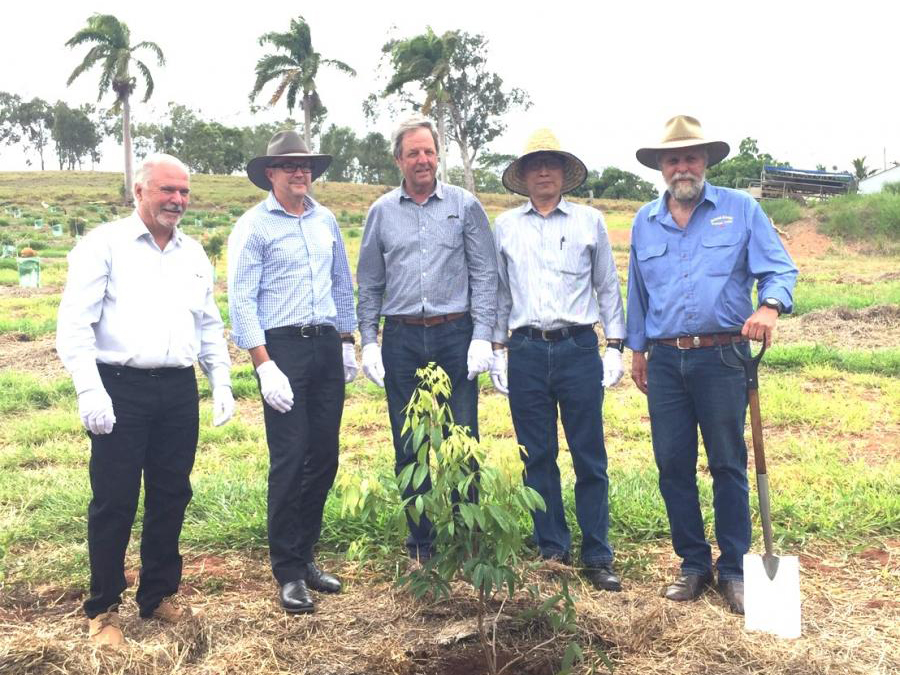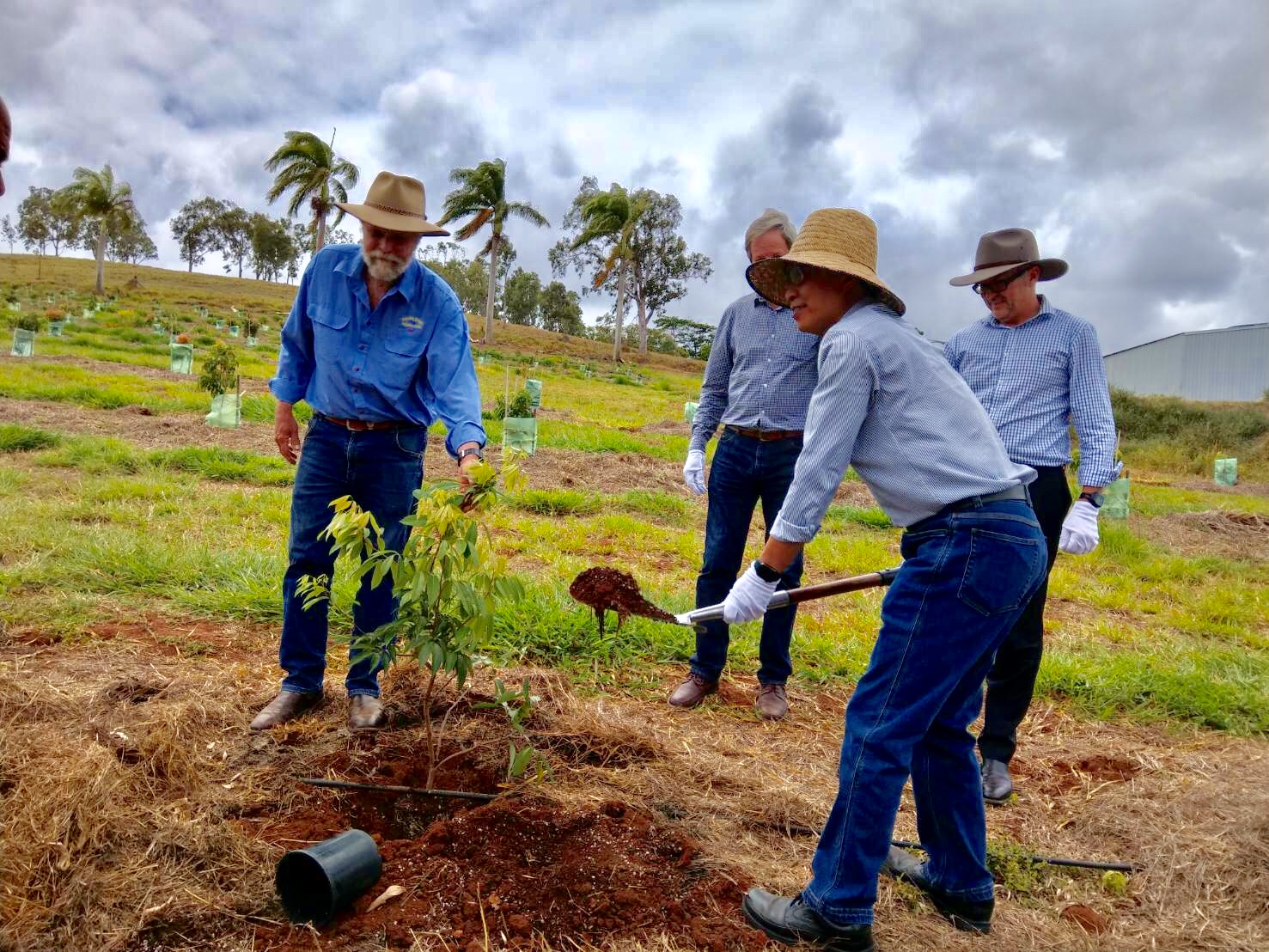Taiwan lychee varieties are sent to Australia to launch a counter-seasonal production model between the northern and southern hemispheres; Taiwan-Australia agricultural cooperation reaches a new peak
The Council of Agriculture (COA) of the Executive Yuan states that the production season for lychee in Taiwan lasts roughly from May to August of every year, while the production season in Australia, which is in the southern hemisphere, is the opposite of Taiwan’s, and lychee can be produced there from November to February. In order to raise the visibility of Taiwan lychee varieties and extend the supply period each year, the governments of Taiwan and Australia have cooperated to establish counter-seasonal production areas and manage the Taiwan lychee brand. Through complementarity between markets in the northern and southern hemispheres, Taiwan’s fruit tree industry can be internationalized, developing a new framework for agricultural cooperation based on exports of plant varieties and creating new international commercial opportunities.
The COA has worked with the Australian Department of Agriculture and the Queensland Department of Agriculture and Fisheries to promote a project for counter-seasonal production of Taiwan lychee in the southern hemisphere. The two sides signed a Memorandum of Understanding to this effect in 2016. After more than three years of hard work, six new varieties to lychee developed by the Taiwan Agricultural Research Institute completed the inspection and quarantine process in Australia, and will be used for trial cultivation during the next stage of the project. On October 21 of 2019, COA Deputy Minister Chen Junne-jih led a delegation to Australia to attend the Taiwan lychee trial planting ceremony, a historic moment and a new milestone in Taiwan-Australia agricultural cooperation.

The COA further explains that, with the help of Trade and Investment Queensland (an office of the government of Queensland in Taiwan), the Taiwan lychee trial planting ceremony was held on October 23 in Queensland’s Livingstone Shire. It was presided over jointly by COA Deputy Minister Chen Junne-jih and an official from the Queensland Department of Agriculture and Fisheries, and was attended by the local mayor, officials from the Department of Agriculture and Fisheries, and businesses from Taiwan and Australia that invest in agriculture.
COA Deputy Minister Chen mentioned that, after long-term efforts by the Taiwan Agricultural Research Institute, they have selectively bred a number of varieties of Taiwan lychee that will be competitive in the international market. The special features of these varieties is that they are easy to peel, they can start production earlier, and that they stand up well to storage and transport. They are therefore distinctive and have a competitive advantage in the market. The purpose of this trip to Australia for trial planting of lychee trees was not only to cultivate a preference for Taiwan lychee varieties in the Australian market, but also to extend the annual production and supply periods through cultivation in both the northern and southern hemispheres.

To protect the intellectual property rights of the lychee varieties used in this trial planting, the COA has already applied to IP Australia (the Australian government agency responsible for intellectual property rights) for protection of the plant variety rights. At present they already have provisional protection. When the application process is complete, Taiwan lychee varieties, through a rigorous variety protection process, will be licensed to local businesses for production and marketing, thereby building up an international brand name for Taiwan lychee, generating good word-of-mouth, and developing new markets in New Southbound Policy partner countries.
